Programmingravenclaw - Code On

More Posts from Programmingravenclaw and Others

hey hey hey everyone!! as a self-proclaimed mathlete & absolute math nerd, i figured i could share some quick little tips for such an amazing subject! soooo here you go:
practice, practice, practice!!
I always say that practice is the most essential aspect of studying & learning math- and many other subjects! This can take the form of homework (mini tip: always do your homework if you are able!!! it’s only to your benefit! even if it’s not for a grade, try your best to work on it anyway), practice problems from a textbook or workbook, old questions from a past quiz or test, etc. Even just a couple of practice problems every day, or some quick q’s before a test, can help a lot. Remember, repetition is a key form of revision!
take active notes
Math is a very active subject, so it’s important for your notes to reflect that. Basically, if you’re working on an example problem in the middle of your notes, write it down too. These problems can come back in quizzes or tests, and they really help reinforce material when you’re reviewing. Another way to keep your notes active is by drawing diagrams!! Diagrams can be essential for certain topics, so please don’t ignore them, even if you think you can remember what that graph looks like. Also, if you ever need to jot something down in the margins of your notes, do it! All of this will really help when you review.
know your calculator
Whether you need to know how to use one, or how to survive without one, calculators are pretty much always relevant when it comes to math. If the subject you’re learning allows it, you should always have a calc nearby, and you should know its basic functions. That doesn’t mean know how to add & subtract (unless that’s all that’s necessary for you), it means being able to work the graphing function, or how to enter data into your calculator for statistical evaluation, how to find certain functions in your calc, etc. It’s also very important to know how to work without your calculator. As you progress in math, there will be certain things that you just need to know how to do, because they take too long with a calc. Basically, make sure you understand what you’re doing with your calculator, so that you can understand how to do it without your calculator.
keep track of everything!
Math is a lot of data & different steps that you need to keep track of. When working on something, know where your numbers (or other forms of data) are, make sure you aren’t missing any! Do your best not to skip steps, even if you’re great at working in your head. Missing data & skipped steps are major sources of error and tiny mistakes that can mess up a whole problem. Also, know your common errors! Do you tend to skip a certain step because you think you’ve got it? Do you sometimes misinterpret graphs or data? Once you’ve figured that out, be extra careful with the specific problems that you have trouble with. Keeping track of your work & your mistakes can help you improve a lot!
memorize what needs to be memorized
A lot of math can be done with basic understanding of how to work a problem & the process to find a solution (these things are generally memorized with practice!) but there are some things that just need to be memorized. Whether it’s elementary functions like addition & division, or basic trigonometry, if it’s not a process you can learn through understanding, and need to know, make sure you know!! Some things can be memorized with practice, and others require different methods of memorization (I typically write & rewrite things multiple times). You can find some great posts on memorization here!
more masterposts!!
stem studying
study methods
precalculus
algebra
geometry
(ap) chemistry
ap world history
studyblr-ing
the everything book
the pomodoro method
how to use flashcards
how to use sticky notes
welcome to high school
tiny study spaces
what’s in a pencil case
i really love math & i wish everyone could see it like i do, so i hope this was helpful! keep shining like the star you are and don’t forget to be awesome today!!
- Aza
The thing about programming is that when you finally find that stupid mistake that cost you the last four hours, you’re never sure whether to be happy, upset, or if you should just punch yourself in the face.
… and it’s not even a Monday. (via thethingaboutprogramming)
on programming
When learning a new language don’t waste your time copying down syntax, it will come naturally after practice. But, if you really need syntax help badly then I can reassure you that most high end languages are heavily documented.
I say this so that you don’t waste all your time taking notes on basic syntax, instead use your study time to copy down any relevant code examples in the textbook, tinker with them and analyze them, comment on them. Practice, practice, practice.
The only time you should take notes is for flowcharting or pseudocode. And of course, notes on concepts.

“Someone special I knew wrote, “The price we pay for living full authentic lives is occasionally having our hearts broken.” I think that that’s true. Pain isn’t beautiful or poignant, but sometimes, if you can get through it, it contextualizes what comes later. A year is a short time. You never think that that’s long enough to substantially change what you’re capable of doing, but what you choose to do every day eventually shapes who you are. A year ago, as much as I loved tech, I wasn’t sure I’d ever want to be in engineering or study computer science. Since then, I’ve learned six programming languages, taken seven CS classes, and worked on twenty-odd personal projects. There’s nothing intrinsically meaningful about a GitHub streak, but, somewhere along the way, I started remembering what it felt like to be myself.”
holy smokes. #GOALS
I’m tearing up and inspired. This is amazing.
The thing about computer programming is that it’s a complete pain in the ass when you’re trying to figure out the problem, yet when you finally solve it, when you finally have that aha moment, the feeling of accomplishment is unlike anything you’ve felt when you’ve accomplished something. You think holy shit, I can make technology work, and that feeling is totally worth the long stretch of hours or even days when computer programming feels like a pain in the ass.
![😁 [Via The Simpsons]](https://64.media.tumblr.com/b58a018291a64d5735b94f12b2740e10/tumblr_orlwptnPP21s04h2ho1_500.jpg)
😁 [Via The Simpsons]

Margaret Hamilton (b. 1936) is a computer scientist and engineer who, as Director of the Software Engineering Division of the MIT Instrumentation Laboratory, played an important part in the Apollo space programme. Her division was responsible for developing the onboard flight software for the missions that put the first men on the Moon, and she was the supervisor and lead programmer of the project.
She graduated with a degree in abstract mathematics, during a time when computer science and software engineering were not yet disciplines in their own right. She worked for the SAGE Project, used by the military in aircraft defense. Since 1986 she has been the CEO of Hamilton Technologies, an organization which she founded.

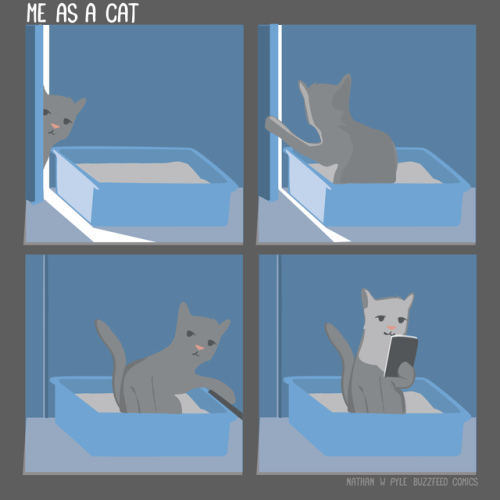
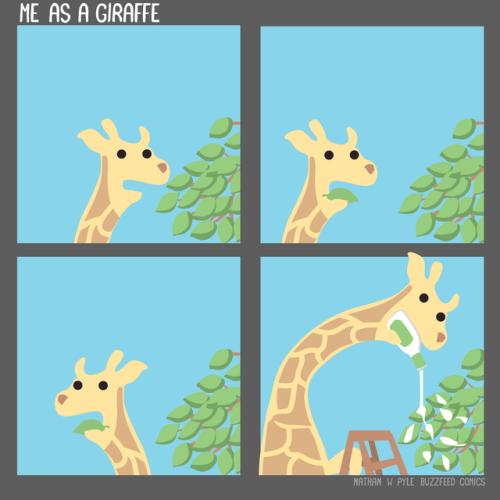
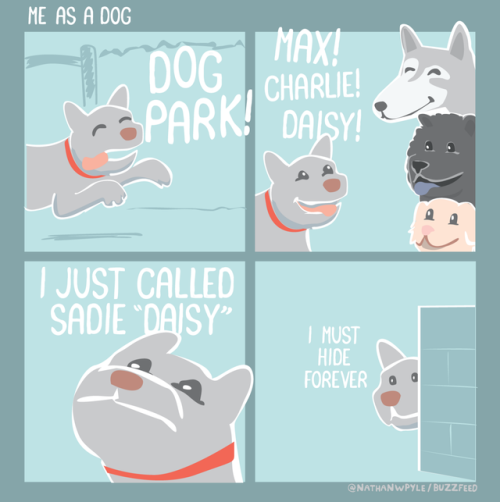
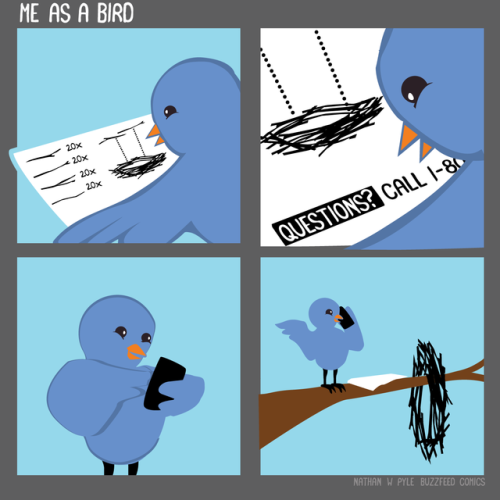

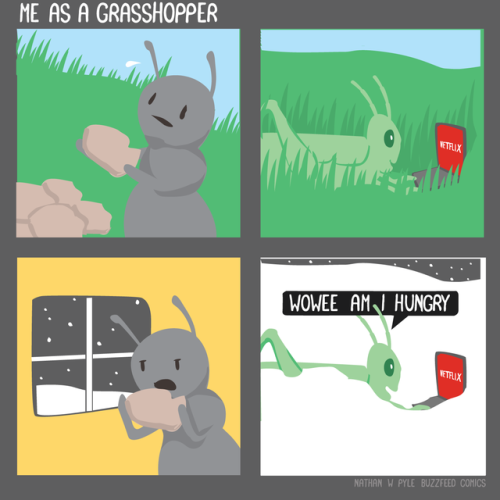
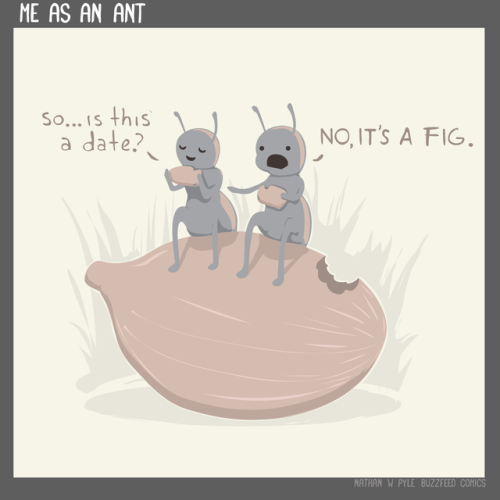
by Nathan W. Pyle
Me:*does badly on something im supposed to be good at*
Me: Well i guess this is the end, im not good at anything anymore, i need to rethink my whole life and also die
-
 poisonsinperspective-blog reblogged this · 7 years ago
poisonsinperspective-blog reblogged this · 7 years ago -
 its-bag-of-chaaps-2419-blog liked this · 7 years ago
its-bag-of-chaaps-2419-blog liked this · 7 years ago -
 ladonja liked this · 8 years ago
ladonja liked this · 8 years ago -
 unfocused-and-unconcerned reblogged this · 8 years ago
unfocused-and-unconcerned reblogged this · 8 years ago -
 unfocused-and-unconcerned liked this · 8 years ago
unfocused-and-unconcerned liked this · 8 years ago -
 judithedna liked this · 8 years ago
judithedna liked this · 8 years ago -
 klunkyboots reblogged this · 8 years ago
klunkyboots reblogged this · 8 years ago -
 thecutepuppyone reblogged this · 8 years ago
thecutepuppyone reblogged this · 8 years ago -
 dancing-daffodil liked this · 8 years ago
dancing-daffodil liked this · 8 years ago -
 you-oughtaknow reblogged this · 8 years ago
you-oughtaknow reblogged this · 8 years ago -
 tinystressedlesbian reblogged this · 8 years ago
tinystressedlesbian reblogged this · 8 years ago -
 actualluna reblogged this · 8 years ago
actualluna reblogged this · 8 years ago -
 thebutcherofolduvai reblogged this · 8 years ago
thebutcherofolduvai reblogged this · 8 years ago -
 obvichicago reblogged this · 8 years ago
obvichicago reblogged this · 8 years ago -
 rachelmclala liked this · 8 years ago
rachelmclala liked this · 8 years ago -
 minuialeth75 reblogged this · 8 years ago
minuialeth75 reblogged this · 8 years ago -
 thislittlebadwolf reblogged this · 8 years ago
thislittlebadwolf reblogged this · 8 years ago -
 opakakaek liked this · 8 years ago
opakakaek liked this · 8 years ago -
 liquidink21 reblogged this · 8 years ago
liquidink21 reblogged this · 8 years ago -
 authorflashcw liked this · 8 years ago
authorflashcw liked this · 8 years ago -
 coronaking reblogged this · 8 years ago
coronaking reblogged this · 8 years ago -
 cecilyacat reblogged this · 8 years ago
cecilyacat reblogged this · 8 years ago -
 pg1890 liked this · 8 years ago
pg1890 liked this · 8 years ago -
 thunder-rad reblogged this · 8 years ago
thunder-rad reblogged this · 8 years ago -
 mollybecameanengineer reblogged this · 8 years ago
mollybecameanengineer reblogged this · 8 years ago -
 the-goofball reblogged this · 8 years ago
the-goofball reblogged this · 8 years ago -
 rinari7 reblogged this · 8 years ago
rinari7 reblogged this · 8 years ago -
 justiceyleague reblogged this · 8 years ago
justiceyleague reblogged this · 8 years ago -
 programmingravenclaw reblogged this · 8 years ago
programmingravenclaw reblogged this · 8 years ago -
 sleebymutual reblogged this · 8 years ago
sleebymutual reblogged this · 8 years ago -
 zenakojazna reblogged this · 8 years ago
zenakojazna reblogged this · 8 years ago -
 hedy-lamarr-blog reblogged this · 8 years ago
hedy-lamarr-blog reblogged this · 8 years ago -
 hedy-lamarr-blog liked this · 8 years ago
hedy-lamarr-blog liked this · 8 years ago -
 ladyspin-slingfox liked this · 8 years ago
ladyspin-slingfox liked this · 8 years ago -
 inthisquarter liked this · 8 years ago
inthisquarter liked this · 8 years ago -
 livelikurdying reblogged this · 8 years ago
livelikurdying reblogged this · 8 years ago -
 dorfhexe liked this · 8 years ago
dorfhexe liked this · 8 years ago -
 herstoryangels reblogged this · 8 years ago
herstoryangels reblogged this · 8 years ago -
 thewantonwonton reblogged this · 8 years ago
thewantonwonton reblogged this · 8 years ago -
 epoxyconfetti reblogged this · 8 years ago
epoxyconfetti reblogged this · 8 years ago -
 epoxyconfetti liked this · 8 years ago
epoxyconfetti liked this · 8 years ago -
 isaackuo liked this · 8 years ago
isaackuo liked this · 8 years ago -
 doctortrek reblogged this · 8 years ago
doctortrek reblogged this · 8 years ago -
 teawithghosts liked this · 8 years ago
teawithghosts liked this · 8 years ago -
 tiki-papier liked this · 8 years ago
tiki-papier liked this · 8 years ago
Full-time Computer Science student, reader, and gamer with a comics addiction.
121 posts
